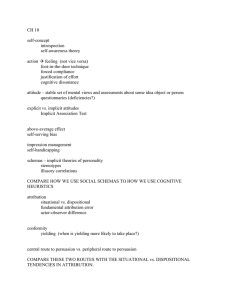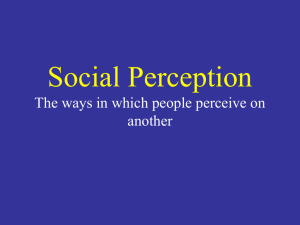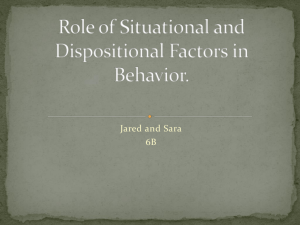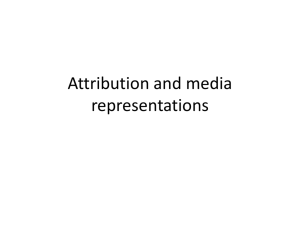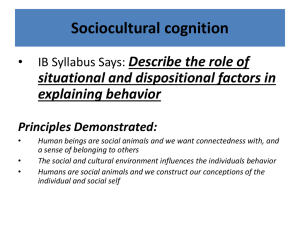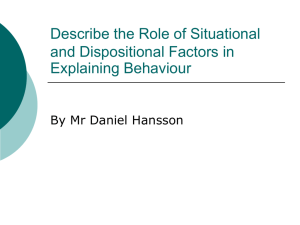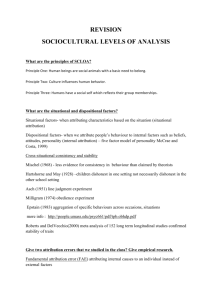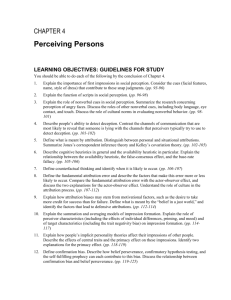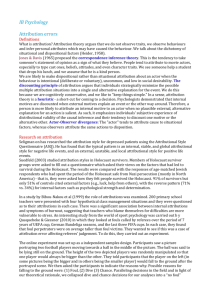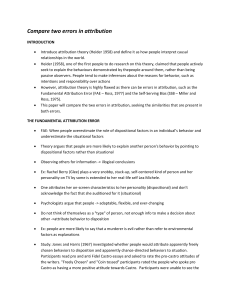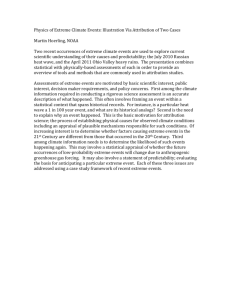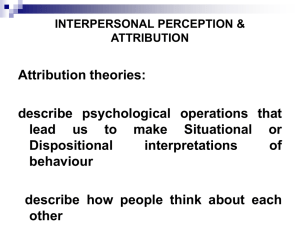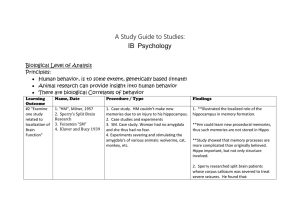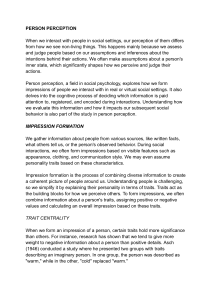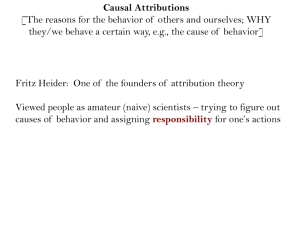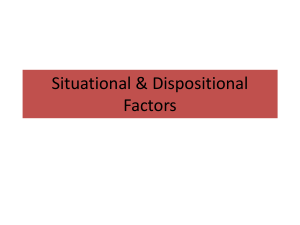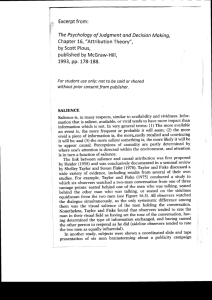Social Psychology – Chapter 18
advertisement
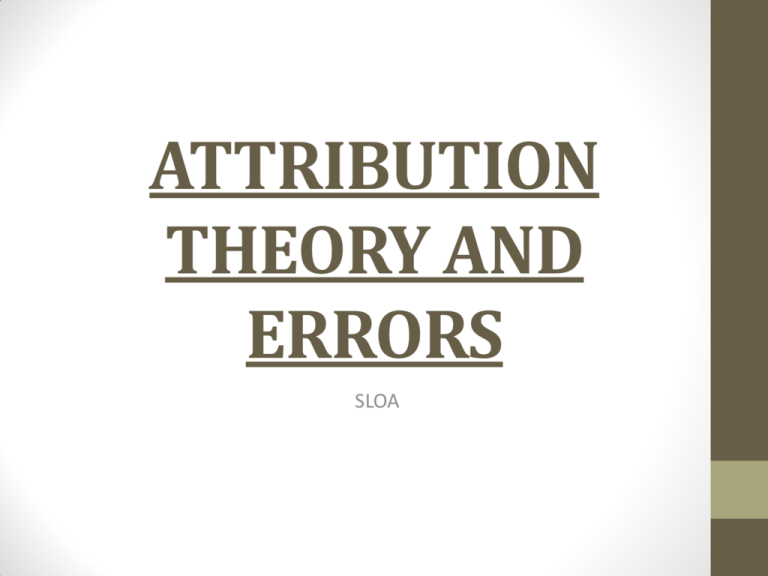
ATTRIBUTION THEORY AND ERRORS SLOA KEY VOCABULARY • Attribution: The processes by which individuals explain the causes of behavior and events. • Attribution error: When our perception of causality is distorted by our needs and certain cognitive biases. • Defensive attribution error: Defensive attributions are made when individuals witness or learn of a something bad happening to another person. In these situations, attributions of responsibility to the victim for the accident will depend upon the accident's severity and the level of personal and situational similarity between the individual and victim. More responsibility will be attributed to the harm-doer as the outcome becomes more severe, and as personal or situational similarity decreases. • DIspositional factors: one's personality, character, and ability. • Fundamental attribution error: the tendency to overestimate the dispositional and underestimate the situational factors when explaining the behaviors of others. • Modesty bias: Common among collectivistic cultures, the tendency to attribute dispositional and internal factors for one's own failure and situational, uncontrollable factors for one's own success. • Self-serving bias: Attributing dispositional and internal factors for one's own success and situational, uncontrollable factors for one's own failure • Just world hypothesis: a belief that the universe is morally fair and that people are rewarded for noble actions and punished for bad ones. This belief is the foundation of defensive attribution error. If someone has something terrible happen to her, she most have been doing something wrong. The implication is that "I" would never do that, so I would have been safe. KEY STUDIES FOR ATTRIBUTION • Fahr, Dobbins & Cheng (1991) - examining self-reports of 982 Chinese workers in Taiwan found that Chinese employees rated their job performance less favorably than did their supervisors. This modesty bias occurred relatively uniformly across gender, various educational levels, and age groups • Johnson et al (1964) - self-serving bias in student tutors • Lau & Russel (1980) - on self-serving bias among football coaches and players • Quaquebeke & Giessner (2010) - on FAE in fouls called by football referees. • Ross et al's (1977) - game show study and FAE • Walster (1966) - on defensive attribution error SOCIAL PSYCHOLOGY The study of how we think about, influence, and relate to one another (or how do we explain mass suicides, prisoner abuse at Abu Ghraib, brainwashing, and other shocking phenomena) ATTITUDES INFLUENCE ACTIONS… Attribution Theory (Fritz Heider, 1958) – people usually attribute others’ behavior to either their internal dispositions or their external situations. Actor-Observer Effect: people tend to make an attribution about behavior depending on whether they are performing or observing some perform it. DISPOSITIONAL (INTERNAL) OR SITUATIONAL (EXTERNAL)? • They won only because the best athletes on the Central State’s teams were out with injuries – talk about good fortune. • • They won because they have some of the best talent in the country. • • Internal (dispositional) Anybody could win this region; the competition is so far below average in comparison to the rest of the country. • • External (situational) External (situational) They won because they put in a great deal of effort and practice. • Internal (dispositional) Our attributions have consequences. The following attribution errors lead to overconfidence. • Fundamental Attribution Error – underestimating situational influences when evaluating the behavior of someone else. • He swerved into my lane because he is a jerk. • Self-serving bias – crediting your own successes to disposition, but attributing your own failures to situation. • Example: I won the game because I’m talented. OR I failed the test because the questions were unfair. Modesty bias – attributing failures to the lack of ability • Example: I did not do well on the test because I didn’t study like I should have (because I’m unmotivated). • Tends to be more prevalent in Eastern cultures. WHY? http://www.youtube.com/watch?v=zhkNVUZ4fVM
